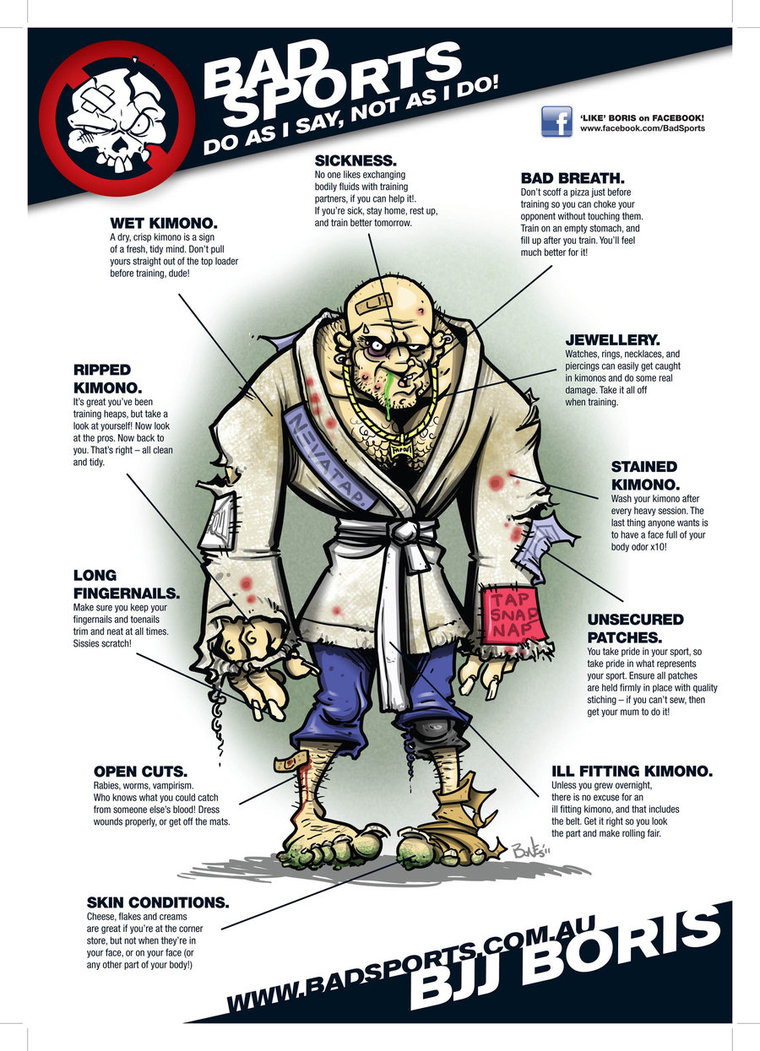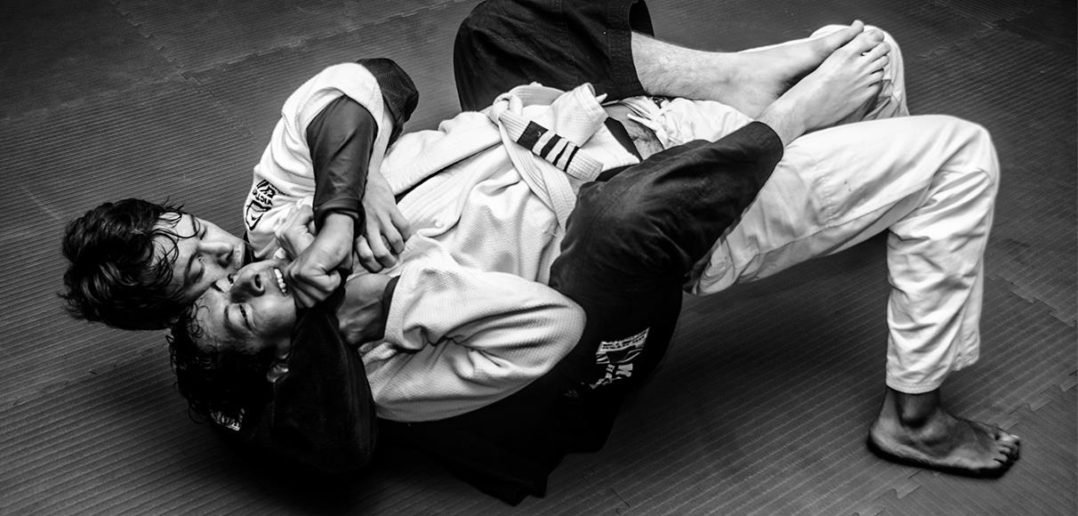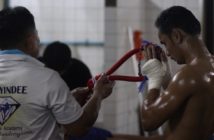Both Jiu-Jitsu and BJJ have their own set of rules of etiquette that may or may not be known to beginner students. These unwritten rules are designed to ensure order is kept, health and hygiene is maintained and safety and good training relationships and habits are formed.
Although we have stated that this list is comprehensive there maybe a number of minor etiquette rules that are unique to various schools. This is in fact our comprehensive list of the most common rules of etiquette that you will see in many bjj academies.
Greet your instructor and fellow students
Always be respectful when entering any dojo and always bow or greet your professor, instructor as well as fellow students when you enter the mat. You might forget someones name but you should not forget how to behave or use their correct title. Take a lead from what the other students do and if in doubt simply ask.
Clean Gi and clean body
The requirement for being clean taking care of your body and Gi should never be understated. Regardless of level it is extremely unpleasant rolling with people who for a better word stink.
Retching while racing home to shower because you’re drowning in the pungent oder of another is highly distasteful. People who smell are avoided like the plague and it won’t be long before someone mentions it, so save the embarrassment.
Come to class clean
- have underwear underneath the gi pants (and a rashguard under the gi controls sweat)
- keep your kimono washed and smelling clean at all times!
- finger and toe nails trimmed short to avoid scratching partners
- rings, earrings, piercings, necklaces and other items should be removed
Maybe this is better said by Boris

Know the meaning of good practice
You won’t be expected to know all the rules at the start however, don’t go into practice matches or sparring with the aim of slamming and striking. If you’re new to BJJ and it is still not clear on the rules you can find out more information here. In the first instance:
- Don’t strike
- Don’t slam
- No eye gouges
- No hair pulling
- Don’t grab and bend the individual fingers
Leave your ego at the door
It is important if you are going to manage sparring sessions efficiently to never take your training partners moves as personal. Even if they are offending this rule, do not play into this downward spiral. Jiu-jitsu involves close quarters combat. Instead of viewing it as fighting think of it as a game against practice partners. Jiu Jitsu is a series of offensive or defensive moves against an opponent taking similar action against me. You may like or not like the person. But during the Jiu Jitsu training session personal feelings are not relevant. Your aim is to learn. This is why going light initially and focusing on technic and flow during sparring sessions can be of great use. As is tapping often and quick when necessary. Don’t risk injury to yourself or your partner.
Ultimately you can’t develop your game and maintain a bloated ego, it stagnates your progress and makes you focus too often on your strengths/ muscles, rather than the weaknesses in your game and technic. Many of the top players are extremely humble, you need only look at Marcelo Garcia as an example of how to approach BJJ. Big egos on the mat aren’t useful. In fact, after a couple minutes of live mat time the people in the class will have a great understanding of who you are and your abilities. Don’t be that guy that everyone quietly celebrates getting tapped or a person who talks about “who tapped who” (this type of behaviour gets bitchy fast).
Respect
This is the biggest one and it encompasses almost everything above and all below. Follow the schools rules and hierarchy. If you are unsure about anything ask. Black belts have the rank and the ability to back it up. The senior belts show respect to everyone regardless of belt and rank. They do this because their journey has been stained with hardship and humility. The best way to show and receive respect on the mat is to smile and be friendly with all your training partners.
Thank them for the roll they just participated in with you and always remember that if you are disrespectful on the mat you are not getting the essence of Jiu-Jitsu.
Basics guidelines for respect include:
- During class, when the instructor is demonstrating the techniques, talking should be kept to a minimum level and should relate to the class subject.
- Be careful about asking a higher belt to roll – in some schools it may be seen unfavourably. If a higher belt asks you to roll never refuse unless you are incapable to roll by injury or sickness.
- When you are rolling and are within the space of higher belts rolling – always give way to the higher rank and restart your roll in a clear area of the mat.
- Learn the the history of BJJ/ Jiu-jitsu and your instructors lineage, to understand the Art. Many new students do not understand the history and therefore, do not fully appreciate that we all “stand on the shoulders of giants”.
- Be on time. If you are late for class sit by the side of the training area and wait for the permission from the Professor.
- If you need to leave the mat or leave earlier you must ask permission from the instructor.
- No shoes, food or drink on the mat! Pick up your empty water bottles after training.
- No barefoot in the washroom and then back on the mat. Don’t track bacteria onto the training area.
- If you have a communicable health condition don’t bring it into the training area.
- Don’t bad talk other schools or engage in negative gossip about other students. Don’t spread rumours that can come back to haunt you later.
- Keep the cel phone distractions out of the training area – other people want to concentrate on their training.
Cross training in different schools
This is an issue hotly debated, with this there are varying degrees of thought at play. Both sides of the argument have valid points. But whatever your thoughts and opinions, you should be honest, and state your true intentions. Be true to yourself as much as your team.
If you want to train with some friends at another school, let your instructor know to give respect to your first team and instructor.
This debate focuses on the notion of whether cross-training in different at schools (under different instructors) is essential for the development of modern Jiu-Jitsu and the growth of the Jiu-Jitsu community verses ‘Creonte’ – students who jump from one school to another, and so lose the pride to represent a particular school, disloyalty.
“You have to look at what is best for you, look for the best coaches. You can add more coaches but do not forget where you came from.” – Wallid Ismail
Here’s what Rickson Gracie had to say about it. This clip however, is the full version and not the short clip circulating the internet.
Sources for this article: www.grapplersplanet.com, www.jiujitsutimes.com, www.gentlemangrappler.com, www.bjjee.com, www.bjjee.com






